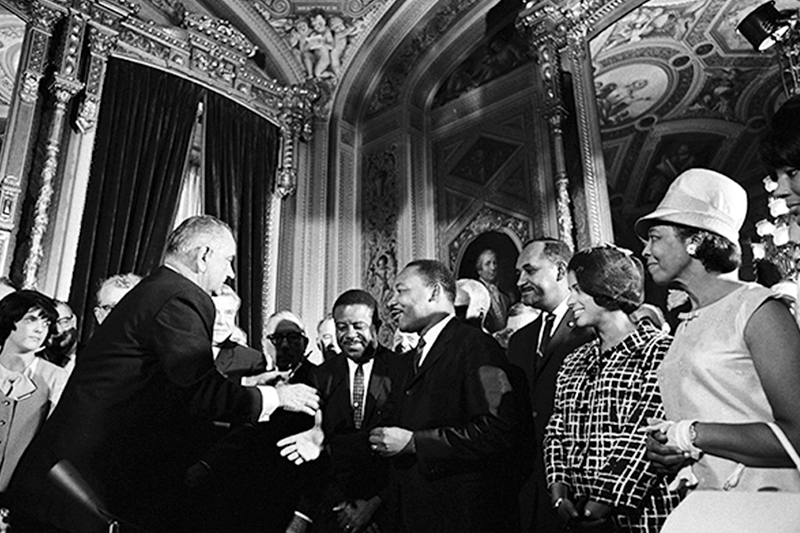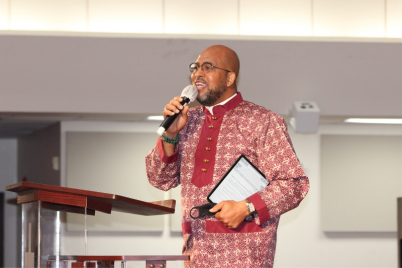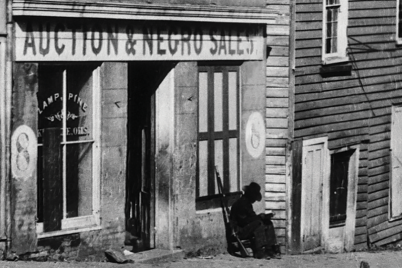President Johnson and Martin Luther King, Jr. at the signing of the Voting Rights Act on August 6, 1965.
BY JACQUELINE HUBBARD, President, ASALH
Congress passed the 15th Amendment to the United States Constitution in 1869, which granted African-American men the right to vote by declaring the “right of citizens of the United States to vote shall not be denied or abridged by the United States or by any state on account of race, color, or previous condition of servitude.”
At the time of its passage shortly after the Civil War, there was a huge debate between the suffragists, who wanted the right to vote for women and not for black men, at least not before them. Nonetheless, after the defeat of the Confederate Army, the Civil War Amendments (13th ending involuntary servitude except for the criminally convicted; the 14th guaranteeing due process and equal protection for all citizens, including recently emancipated black persons and the 15th Amendment, ensuring the right to vote to black men) were passed by Congress.
One of the last victories of Reconstruction was the passage of the Civil Rights Act of 1875, whose passage was valiantly fought for several years by Senator Charles Sumner. Upon its passage and one year after Sumner’s death, President Ulysses S. Grant signed the Civil Rights Act into law on March 1, 1875.
This law outlawed racial segregation in public accommodations, schools, transportation and juries. This act was struck down by the United States Supreme Court in 1883. No other civil rights law came into being until 1957, nearly 70 years later.
It was only after the Civil Rights Movement of the 1960s did Congress finally pass the comprehensive Civil Rights Act of 1964, which incorporated many of the provisions of the 1875 law. The Civil Rights Act of 1964, enacted on July 2, 1964, is a landmark civil rights and U.S. labor law that outlaws discrimination based on race, color, religion, sex or national origin.
On August 6, 1965, nearly 100 years after the Civil War, President Lyndon Johnson signed the Voting Rights Act into law. The voting rights law was the pinnacle of the Civil Rights Movement; it outlawed the discriminatory voting practices adopted in many southern states after the Civil War, including literacy tests and poll taxes as prerequisites to voting.
Its opponents have attacked it since it was enacted into law. This precious right, upon which the American democracy stands, has been a long and hard fight for black Americans and benefits all Americans.
As we prepare to go to the polls once more in a historic election, let us remember the struggle for the right to vote. Let us honor this struggle and exercise this right. Let us VOTE.
It took black America nearly four generations to gain the right of equal access to the voting booth after the Civil War. Even as we read this, the right to vote is still under attack.
Commit yourselves always to vote in every election. It is a good and useful habit and often the only real means to protect our liberties. Never take this right for granted.
Attorney Jacqueline Hubbard graduated from the Boston University Law School. She is currently the president of the St. Petersburg Branch of the Association for the Study of African American Life and History, Inc.








